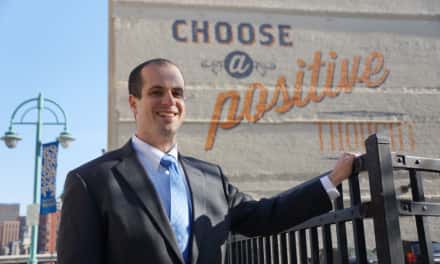
A new Marquette Law School Poll finds Wisconsin voters divided in their opinions on the value of the Foxconn Technology Group’s planned flat-panel-display factory in the state.
Forty-nine percent of voters think that the state is paying more in incentives than the Foxconn plant is worth, while 38 percent think that the plant will provide at least as much value as the state’s investment. Thirteen percent say they don’t know whether the plant will be worth it or not.
A majority — 57 percent —o f registered voters statewide believe that the Foxconn plant will substantially improve the economy of the greater Milwaukee area, while 35 percent do not think it will and 8 percent say they don’t know. It has been suggested that the plant, which will be built with state funding of $3 billion, will provide up to 13,000 direct jobs.
But in contrast to the expected economic impact on the Milwaukee area, only 25 percent statewide say businesses where they live will benefit directly from the Foxconn plant, while 66 percent say their local businesses will not benefit and 8 percent do not know. This includes respondents in the Milwaukee area who also doubt existing businesses in their area will see a direct benefit from Foxconn.
Twenty-nine percent of statewide voters say they are very concerned that the Foxconn plant will have a negative impact on water and environmental quality, with an additional 33 percent saying they are somewhat concerned. Eighteen percent say they are not very concerned and 14 percent say they are not at all concerned about the environmental impact.
The poll was conducted February 25 to March 1, 2018. The sample included 800 registered voters in Wisconsin, interviewed by cell phone or landline, with a margin of error of +/- 4.5 percentage points. Some items were asked of half the sample and have a margin of error of +/- 6.4 percentage points or +/- 6.3 percentage points. Half-sample items and their margins of error are listed at the end of this release and online. Entries may not sum to 100 due to rounding.
There are regional differences in views of the value of the Foxconn plant, with the strongest support in the Milwaukee area outside of the City of Milwaukee. Residents of the city are much less likely than regional counterparts to think that the benefits will outweigh the state’s subsidy, as are residents of the Madison media market. The Green Bay area and the north/west region of the state (including the La Crosse/Eau Claire, Minneapolis-St. Paul, Duluth/Superior and Wausau media markets) have a common level of skepticism.
Across the regions of the state, majorities believe the Foxconn facility will substantially improve the Milwaukee area economy, although a majority of residents of the City of Milwaukee believe that it will not boost the region’s economy. Those living in the Milwaukee area outside the city are most optimistic about the economic impact, although 59 percent and 57 percent of residents of the Green Bay and the northwest region of the state, respectively, think that the Milwaukee area will benefit economically. A bare majority of Madison area residents, 51 percent, say Foxconn will substantially boost the Milwaukee economy.
Wisconsin voters are less likely to believe that businesses near where they live will directly benefit from the Foxconn development, and this is true for all regions of the state. Fewer than 40 percent of residents in any region of the state think that Foxconn will directly benefit businesses in their area, with as few as 17 percent in the northwest region seeing a benefit.
Gun Issues
In the aftermath of the recent school shooting in Florida, Wisconsin residents support background checks on private gun sales and sales at gun shows. Eighty-one percent support such background checks while 16 percent oppose them. When the question was last asked in June 2016, 85 percent supported and 12 percent opposed background checks.
Fifty-six percent favor a ban on assault-style weapons, while 40 percent oppose such a ban. That question was previously asked in March 2013, when 54 percent favored and 43 percent opposed a ban on assault weapons.
Of those with a gun in their household, a substantial majority, 78 percent, support background checks, while 18 percent oppose the checks. Among households without a gun, 86 percent favor and 13 percent oppose background checks.
A ban on assault-style weapons is opposed by 52 percent and favored by 43 percent of voters among households with a gun, while among households without a gun a ban is favored by 69 percent of voters and opposed by 28 percent.
Wisconsin voters are more divided on the effectiveness of possible new gun control laws in reducing mass shootings. Twelve percent think that new laws would reduce mass shootings a great deal, with another 22 percent saying this would reduce shootings a moderate amount. Nineteen percent say that additional gun control would reduce shootings only a little and 43 percent say that new laws would have no effect at all.
Voters in households with guns are most doubtful that gun control laws would reduce mass shootings, with 57 percent saying this would have no effect at all, 18 percent saying a little effect, 17 percent a moderate effect and 6 percent saying a great deal. Among households without a gun, 20 percent say that new gun laws would reduce shootings a great deal, with another 30 percent saying a moderate amount. Nearly as many of voters in households without guns express skepticism, with 16 percent saying gun laws would have only a little effect and 28 percent saying no effect at all.
Statewide, 44 percent of voters live in households with a gun, 48 percent do not and 8 percent say they don’t know or decline to say whether there is a gun in the house. Ownership is most common in the Green Bay media market and the north/west portion of the state, is equal as between Madison and the Milwaukee area outside the city and least common among City of Milwaukee residents.
Views of President Trump
President Donald Trump has a 43 percent approval rating, with 50 percent disapproving. In the Marquette Law School Poll in June 2017, his approval was 41 percent, with 51 percent disapproving.
Fifty percent think Trump is keeping the promises he made during his campaign, while 46 percent think he is not doing so. Last June, 49 percent said he was keeping his promises and 46 percent said he was not.
Forty-three percent describe Trump as someone who cares about people like them, while 54 percent say this does not describe him. In June, 40 percent said he cares and 55 percent said this does not describe him.
Thirty-seven percent say Trump shows good judgment and 59 percent say he does not. In June, 34 percent said he shows good judgment while 61 percent said he does not.
Views of President Trump are sharply divided along party lines, with 89 percent of Republicans approving and 8 percent disapproving. The numbers are reversed among Democrats, with 89 percent disapproving and 9 percent approving. Among independents, 34 percent approve and 53 percent disapprove.
Immigration
Most Wisconsin voters, 71 percent, support a path to citizenship for undocumented immigrants currently working in the United States, with 14 percent saying such individuals should stay as temporary guest workers and 9 percent saying they should be required to leave the country.
Support for citizenship of undocumented immigrants brought to the United States as children and raised here is even higher, with 86 percent saying that such “DREAMers” should be able to stay and apply for citizenship, 8 percent saying they should stay as permanent residents but not be allowed to apply for citizenship and 4 percent saying they should be required to leave the country.
Wisconsin voters oppose building a wall along the entire border with Mexico by a 59 percent to 37 percent margin.
Russia and Mueller’s Investigation
Voters are evenly divided in their confidence in special counsel Robert Mueller to conduct a fair and impartial investigation into Russian interference in the 2016 U.S. presidential election, with 24 percent having a great deal of confidence, 22 percent having some confidence, 20 percent having only a little and 23 percent saying they have no confidence at all. When first asked in June, 20 percent had a great deal, 31 percent had some, 17 percent had only a little and 21 percent had no confidence at all in the Mueller investigation.
In this poll, 5 percent of Republicans had a great deal of confidence while 34 percent had none at all. In June, 13 percent had a great deal of confidence while 26 percent had none at all. Among Democrats, 43 percent now have a great deal of confidence while 12 percent have none at all. In June, it was 30 percent with a great deal of confidence while 12 percent had none at all.
More than half of Wisconsin voters say they are very (33 percent) or somewhat (22 percent) concerned about possible Russian attempts to influence the 2016 election, while 19 percent are not too concerned and 26 percent are not concerned at all.
Republicans feel less concerned about Russian influence, with 45 percent not at all concerned, 23 not too concerned, 23 somewhat concerned and 9 percent very concerned. Among Democrats, there is more concern with 59 percent very concerned, 26 percent somewhat concerned, 10 percent not too concerned and 6 percent very concerned. Independents fall in between, with 33 percent very concerned, 19 percent somewhat concerned, 22 percent not too concerned and 26 percent not at all concerned.
The Marquette Law School Poll is the most extensive statewide polling project in Wisconsin history. This poll interviewed 800 registered Wisconsin voters by landline or cell phone, February 25 to March 1, 2018. The margin of error is +/-4.5 percentage points for the full sample. Some items were asked of half the sample. Those items on Form A (state items) were asked of 402 respondents and have a margin of error of +/-6.4, and those on form B (federal items) were asked of 398 respondents and have a margin of error of +/-6.3. Form A items include property tax cuts or increases for public schools and views of Act 10. Form B items include two item on immigration, whether to build a wall on the Mexico border, three items on guns, the Mueller investigation, concern for Russian influence in the 2016 election and whether Trump has kept campaign promises, cares about people like you and shows good judgment.
The partisan makeup of the sample, including those who lean to a party, is 41 percent Republican, 45 percent Democratic and 11 percent independent. The long-term total for the previous 43 statewide Marquette Law School polls, with 37,752 respondents, was 43 percent Republican and 47 percent Democratic, with 9 percent independent. The partisan makeup of the current sample, excluding those who lean to a party, is 27 percent Republican, 25 percent Democratic and 46 percent independent, compared to the long-term totals of 27 percent Republican, 31 percent Democratic and 41 percent independent.














